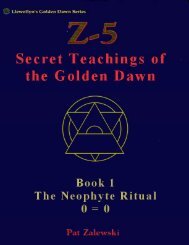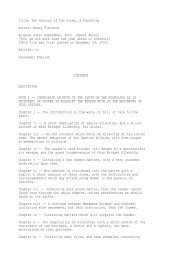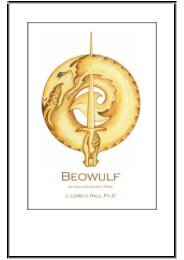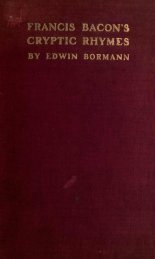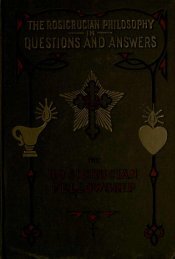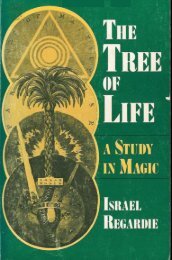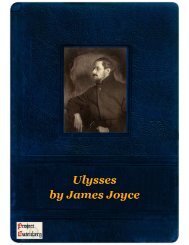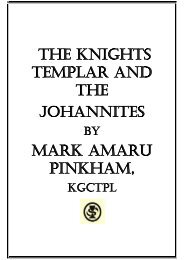Click to download PDF version: 3.87MB - Global Grey
Click to download PDF version: 3.87MB - Global Grey
Click to download PDF version: 3.87MB - Global Grey
Create successful ePaper yourself
Turn your PDF publications into a flip-book with our unique Google optimized e-Paper software.
128 At the Back of the Black Man's Mind By R. E. Dennett<br />
"Get off that tree" (sic), says the Mbambi, "and allow me <strong>to</strong> rest this load of mine against<br />
its trunk." "Why," answered the NKAWLA, "use such a false picture <strong>to</strong> deceive me; you<br />
know that this is not a tree, and you know that you simply wish <strong>to</strong> kill and eat me. I am<br />
here; kill me!" And the MBAMBI snapped at the NKAWLA and devoured it.<br />
The skin of this lizard is found in the basket of bilongo in the XIBILA.<br />
NSEXI (SECI or SACI), a kind of antelope that is also known by the name KINKUBA, an<br />
axe, and KIMPITI, half a matchet. What a beautiful yet deceitful and undutiful animal<br />
this is is well shown in the s<strong>to</strong>ries Nos. 4 and 19 in Notes on the Folklore of the Fjort.<br />
NSEXI KU SEKA, say the Bavili, meaning the dust of corruption. Its head and horns are<br />
found in the XIBILA.<br />
NVULI (the water buck). NVULI OBO, listen <strong>to</strong> what another says. Like the NKUTI<br />
antelope, the NVULI listens <strong>to</strong> the false cry of the hunter, and so often falls an easy prey<br />
<strong>to</strong> his destroyer. Its head and horns are found in the XIBILA.<br />
NGULUBU NGULU MBAKALA KE KU MANA MAYAKA. It is the pig that steals the manioc<br />
(in the market). After certain palavers, certain household fetishes like MPUMBU are<br />
washed in the blood of the pig. Its dried blood also enters in<strong>to</strong> many bilongo. It is the<br />
head of the pig that enters the XIBILA.<br />
XINGOLO XINYUNDU (the otter) XIBANGo NGOLA MACI.<br />
The strength (resistance) of the anvil (NYUNDU) demolishes the firmness of the waters,<br />
or the otter eats the fish called NGOLA.<br />
The saying above is a figurative way of implying that the wife should satisfy the desire<br />
of her husband. The skin of the otter is used in the place of the proverbial figleaf as a<br />
dress. All princes in their visit <strong>to</strong> the XIBILA wear this skin.<br />
There are five kinds of fish forming the class MBIZI XIBALA, the spikes of which enter<br />
in<strong>to</strong> bilongo; they are XIENDO, MPUDI, NKOKO, NGOLA, and XIBUELA. MPUDI and<br />
NGOLA are the cat fish, the others are rays.<br />
NZIKU (=the chimpanzee). XZIKU NKONDO, as the saying goes, "Be careful how you<br />
choose your friends."<br />
NZIKA KE KU ZIKA MINA MUNTU, "an apparently friendly man may get one in<strong>to</strong> a big<br />
palaver."<br />
NZIKU is the XINA of mankind generally. It is not only that there is a certain<br />
resemblance between man and the chimpanzee in their outward form, but they have<br />
many habits in common. It carries its young on its back, and walks about the woods<br />
upon its hind legs with the help of a stick. It fights with a stick. But above all, it is very<br />
gallant, and treats its pregnant wife with the greatest respect, running away from her<br />
www.globalgrey.co.uk



